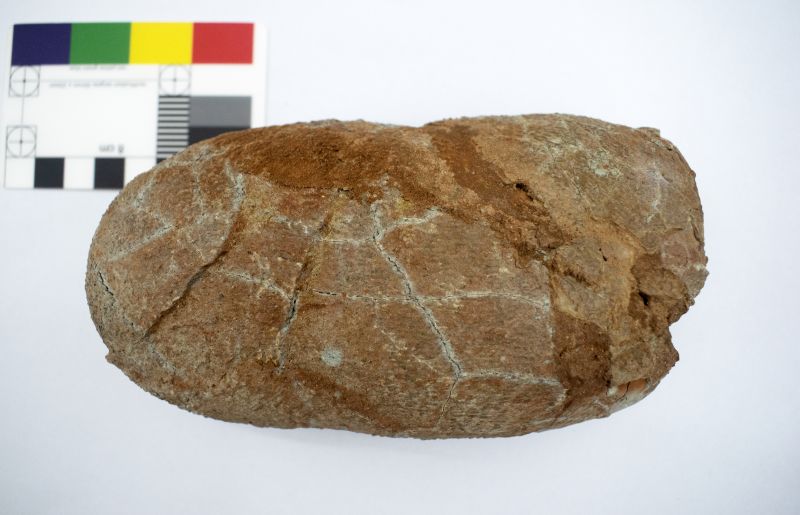
Sep 23, 2022
1 min, 12 secs
The analysis found whole eggs and eggshell fragments from just three species of dinosaurs, which suggested low dinosaur biodiversity during that time period, the researchers said.Macroolithus yaotunensis and Elongatoolithus elongatus belonged to a group of toothless dinosaurs known as oviraptors, while the third, Stromatoolithus pinglingensis, was a plant-eating hadrosaur, or a member of the duck-billed dinosaur group.The researchers said their finding from fossilized eggs was consistent with the fossilized dinosaur bones found in the same and surrounding region, although they did discover a few additional dinosaur bones from the region that show tyrannosaurs and sauropods also lived in the area between 66.4 million and 68.2 million years ago."Our results support a long-term decline in global dinosaur biodiversity prior to 66 million years ago," the study said, "which likely set the stage for the end-Cretaceous nonavian dinosaur mass extinction." Most dinosaurs went extinct, but some smaller, birdlike ones survived and evolved into the birds we see today.Opponents of the theory of sudden death by asteroid point to a period of global cooling that may have made life hard for many dinosaur species.
Their demise has also been linked to a series of massive volcanic eruptions in the Deccan Traps in what is now India.
Paleontologist Alfio Alessandro Chiarenza, a postdoctoral research fellow at the University of Vigo in Spain who has worked on paleoclimate records from that period, said that fossilized eggs are not a reliable record of dinosaur diversity.